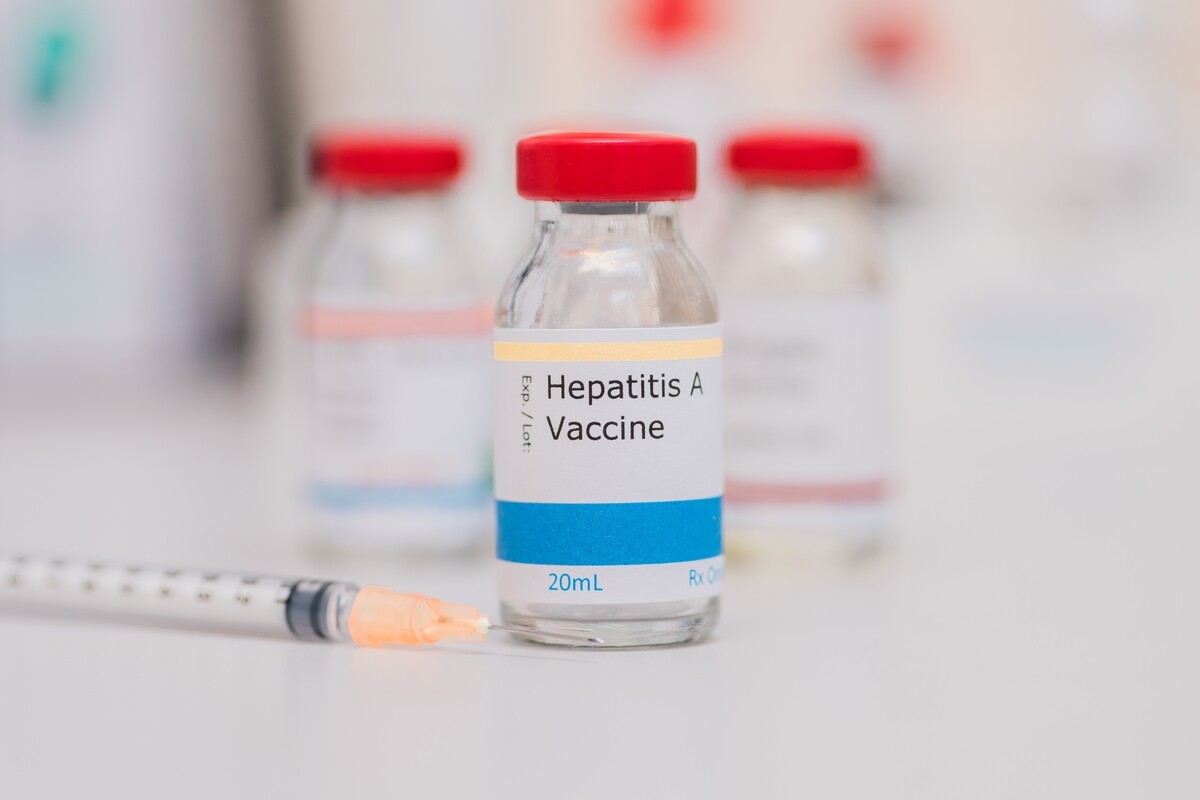A Guide to Hepatitis A Vaccines
April 6, 2023
In Canada, hepatitis A is not a common infection, largely due to modern sanitation practices and immunization with the hepatitis A vaccine. However, that does not mean that taking precautions is unnecessary, particularly for people traveling to parts of the world with higher rates of infection.
Even in North America, outbreaks still happen. The Public Health Agency of Canada reported an outbreak of hep A in Alberta and Saskatchewan in April of 2022, while the CDC reported an outbreak in November-December of 2022 in the USA. And these are just outbreaks, not individual cases of infection.
That is to say, getting a hepatitis A vaccine is still important, both for your personal well-being and for maintaining public health. In this article about hep A vaccines, we will discuss the guidelines regarding the vaccine and where you can get a shot. But let’s start from the beginning.
What Is Hepatitis A?
Hepatitis A is a highly-contagious liver infection that is caused by the hepatitis A virus, or HAV. Besides hepatitis A, there are 4 more main viruses – hepatitis B, C, D, and E. The hepatitis A virus is spread through ingestion. The most common causes are ingestion of contaminated food or water or close contact with an infected person (through fecal matter).
Typically, symptoms appear within 2 to 7 weeks of infection, but not every infected person will show symptoms of the virus. People that do not have any symptoms can still spread the virus. Some of the most common symptoms of hepatitis A are:
- Yellow skin or eyes (jaundice)
- Stomach pain
- Nausea
- Fatigue
- Diarrhoea
- Fever
- Joint pain
- Dark-colored urine
- Light-colored stool
Most people that are infected with the hepatitis A virus do not suffer permanent liver damage and mild cases do not require treatment. Symptoms often last one to two weeks, but more severe cases can last for months.
The best protection against hepatitis A is the hepatitis A vaccine.
What Is the Difference Between Hepatitis A and B?
Both hepatitis A and B affect the liver. However, hepatitis A is an acute infection that typically lasts several weeks, while hepatitis B starts as a short-term illness but can develop into a chronic infection that causes serious liver diseases, including liver cancer.
Unlike hep A, hep B is a blood-borne pathogen that is spread through direct blood-to-blood contact with an infected person. A pregnant woman can also spread hepatitis B to her fetus.
What Are the Benefits of the Vaccine?
The hepatitis A vaccine protects you from contracting HAV. Its estimated effectiveness rate is between 90%-97% after two doses. It is recommended for most people to get the vaccine, but some groups are particularly vulnerable to the virus and should prioritize getting one.
People That Are at High Risk of Infection from Hepatitis A
The groups of people that should prioritize getting the hepatitis A vaccine are:
- Children between 12 – 23 months of age;
- Children between 2 to 18 years of age, if they have not been previously vaccinated;
- Drug users;
- People that work in occupations where the hepatitis A virus is present (e.g., medical workers);
- People traveling to areas with high rates of hep A infections;
- People with chronic liver disease;
- People infected with HIV;
- People that interact with primates;
- Men that have sexual relations with other men.
How Often Do You Need a Hepatitis A Vaccine?
You need to get the hepatitis A vaccine twice, i.e., the vaccine is administerd in two doses. The second dose to complete the vaccine should be taken six months after the first dose was administered. After that, you do not need to get the vaccine again.
Protection After Exposure to the Infection
The HAV vaccine is also effective when it is given to non-vaccinated people that have been exposed to the virus. Thus, it is recommended that you get the vaccine if you believe you may have contracted the virus.
Possible Side Effects of the Hep A Vaccine
The side effects of the hepatitis A vaccine are usually mild. They may include some soreness and redness at the spot where the injection was administered. Headache, mild fever, nausea, fatigue, and muscle pain are some less common side effects. In rare cases, people may experience an allergic reaction.
If you are experiencing an allergic reaction after receiving a hepatitis A vaccine, contact a doctor immediately.
Reasons Not to Get the Shot
There are several groups of people that should not get the vaccine. They are:
- Children under 12 months of age (unless they are traveling to areas where there is a high risk of infection. In such cases, children as young as 6 months may get the vaccine);
- People that have had a hepatitis A infection before (you cannot get the infection if you have had it previously);
- People that have already received two doses;
- People that are allergic to any ingredients in the vaccine.
Hepatitis A Vaccines Available at Everest Pharmacy
There are multiple approved hepatitis vaccines that can protect you from getting hepatitis A. At Everest Whole Health Pharmacy, you can get vaccinated with:
- AVAXIM – vaccine against hepatitis A made by Sanofi Pasteur for people 12 months and older
- Havrix 1440 – hep A vaccine for people over 16 years of age
- Havrix 720 Junior – hep A vaccine for people 1 – 15 years of age
- Vaqta – vaccine for people 12 months and older
If you have any questions or would like to schedule a time to get vaccinated at our Toronto pharmacy, feel free to contact us.






